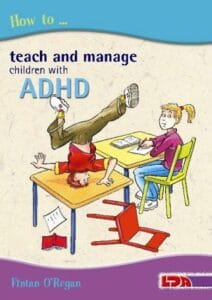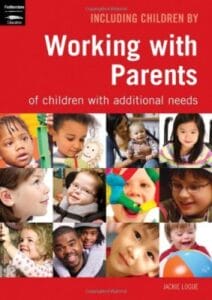ADHD – Key Facts Parents & Teachers Should Know
ADHD, also known as Attention Deficit Hyperactivity Disorder, is a condition that impacts individuals of all ages, including children and adults.
It’s important to keep in mind that occasional symptoms of inattention, hyperactivity, or impulsivity are common for everyone.
However, if these patterns persist and become severe, it could be a sign of ADHD.
Early identification and intervention play a crucial role in supporting children with ADHD to thrive in various aspects of their lives.
Here are 10 key signs that a child may have ADHD:
Inattention:
Children diagnosed with ADHD often find it challenging to maintain their focus on tasks or activities, which can lead to them unintentionally making mistakes by overlooking important details.
They may also have a tendency to get easily distracted, struggle with remembering things in their day-to-day activities, and face difficulties in organising their tasks.
Hyperactivity
ADHD, known for its hallmark of hyperactivity, manifests in children as constant movement, excessive talking, restlessness, and difficulty staying seated.
Impulsive actions, undertaken without considering the consequences, are also common in children with ADHD.
Impulsivity:
Children diagnosed with ADHD often exhibit impulsive behaviour, characterised by making quick decisions without considering the possible consequences.
Consequently, this can create difficulties in their social interactions as they may find it challenging to wait their turn, interrupt others, or adhere to rules.
Difficulty with Focus and Completion of Tasks:
Children diagnosed with ADHD often encounter difficulties in maintaining attention and successfully accomplishing various activities, such as school assignments, household chores, and engaging in playtime.
It is not uncommon for them to initiate multiple tasks simultaneously, yet face challenges in completing any of them.
Consequently, this can lead to feelings of frustration and a lack of fulfilment in their achievements
Forgetfulness and Disorganisation:
Many children with ADHD often struggle with forgetfulness, which can impact their memory for chores, bringing required items to school, or finishing homework.
Another noticeable indication is their tendency to be disorganised, both in their physical surroundings and daily routines.
Frequent Daydreaming:
Children with ADHD often engage in excessive daydreaming and mind-wandering.
It’s not uncommon for them to seem unresponsive or lost in their thoughts, even when someone is speaking directly to them.
This happens because their attention easily drifts away from the task at hand or the ongoing conversation.
Difficulty Following Instructions:
Children diagnosed with ADHD may face challenges in effectively carrying out instructions, sometimes seeming unaware or unable to comprehend the given directions.
As a result, it can be frustrating for both the child and the individuals offering guidance.
Challenges in Peer Relationships:
Children with ADHD often face difficulties when it comes to social interactions.
Their impulsivity and struggles with taking turns or waiting can put a strain on their relationships with peers.
Cooperative play can be especially challenging for them, which may result in feelings of isolation and rejection.
Frequent Mood Swings:
Children diagnosed with ADHD often have more frequent mood swings compared to their peers.
These fluctuations in mood can be triggered by the difficulties they encounter in everyday activities, including schoolwork, social interactions, and organisational tasks.
Academic Struggles:
ADHD frequently affects academic achievement in children.
It can cause struggles with concentration in class, making it challenging for them to focus on tasks and complete assignments.
As a result, their academic performance may suffer, leading to lower self-esteem.
Key Takeaway
If you notice multiple signs that continue for a long time in different situations, it might be a good idea to speak with a healthcare professional.
Getting an accurate diagnosis and suitable strategies can greatly impact your child’s well-being and success with ADHD.
Early identification and focused support can assist children with ADHD in developing coping skills, enhancing their academic performance, and forming positive social connections.
This sets the groundwork for a successful future.
A Selection from our Range for Children with Additional Needs
-
 Reading Success – A Reading Intervention for Students with ADHD (Paperback)£4.99
Reading Success – A Reading Intervention for Students with ADHD (Paperback)£4.99 -
Product on sale
 How to Teach and Manage Children with ADHD (Paperback)Original price was: £11.99.£8.99Current price is: £8.99.
How to Teach and Manage Children with ADHD (Paperback)Original price was: £11.99.£8.99Current price is: £8.99. -
 Working with Parents of Children with Additional Needs£16.99
Working with Parents of Children with Additional Needs£16.99
See our full Range of Support Reference Resources for Parents & Teachers
Is your child or pupil affected by ADHD? Please share your thoughts and experience with us in the comments section below.
Related Topics
10 Signs your Child May Have Special Educational Needs (SEN)
Join our mailing list
Sign up to our Emailing List & Get the Latest Information and Offers on Resources
Thank you for joining !
Something went wrong.






